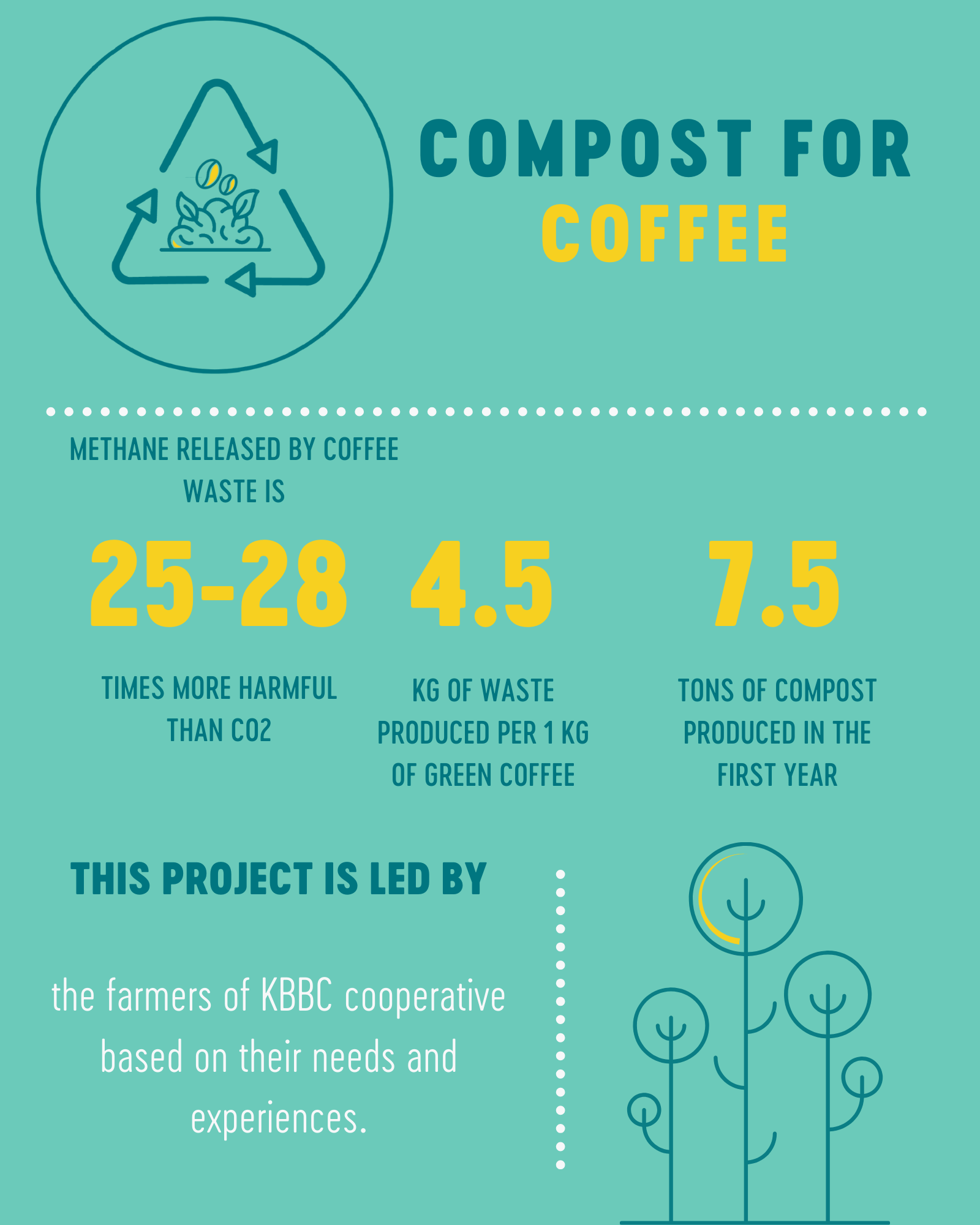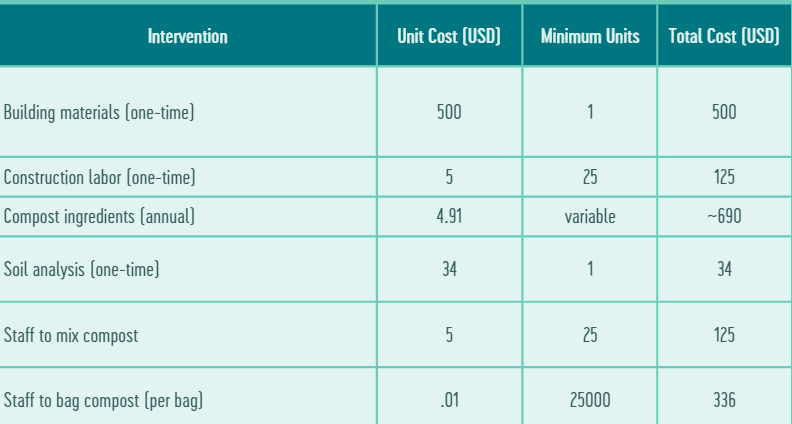Compost for Coffee
Farmers in Indonesia are seeking sustainable solutions that enable them to continue cultivating coffee in Kerinci, Indonesia. With Farmgate Initiative, your purchase of their coffee is contributing to an organic compost project that will enable farmers to continue successfully farming coffee for years to come.
Sales of coffee produced in 2023 contribute to this project. 2022 coffees contributed to a successful avocado seedling project that was completed when all farmers who wanted seedlings were able to access them.
Hear about the creation and impact of this story in the cooperative's own words in this video by Rikolto, our on-the-ground partner.
Coffee processing produces byproducts, so why not turn it into a compound that farmers can use to improve coffee yields? This compost project will support farmers as they work to increase yields and quality. Fertilizer is expensive and many farmers struggle to purchase enough fertilizer to maintain high yields. A new project in Indonesia will turn nutrient-rich pulp from coffee processing into organic fertilizer that farmers can apply to their fields. Fertilizer will nourish coffee trees and increase yields, thus increasing incomes for farmers.

Our previous project with Koerintji Barokah Bersama Cooperative (KBBC), Buy 1 Get 1 Tree, distributed avocado seedlings for farmers to plant on their farms. The project was directly instigated by farmers of KBBC who reported that they wanted avocado seedlings to reforest their farms. Avocado trees provide shade, improve soil health and diversify their income and nutrition. The project was so successful that all KBBC members who wanted seedlings were able to access them. Thanks to that project’s success, they’ve asked our implementing partner, Rikolto, to focus on this new capacity-building project of creating fertilizer from coffee processing byproducts. At the same time, Sucafina Indonesia has spoken with other producing partners and has found that other farmers in Indonesia are eager for access to low-cost, high-impact organic fertilizer. Rikolto is implementing a compost project with KBBC.
For every kilogram of green coffee beans produced, approximately 4.5 kilograms of coffee waste is generated. If a cooperative produces around 100 tons of green coffee beans annually, they are generating 450 tons of waste. Unfortunately, most of this waste is currently left unmanaged and piled up at the back of the processing unit building. Left unattended, these piles generate methane gas, a greenhouse gas that is 25-28 times more harmful than CO2. Recognizing the impact this has on the environment, both cooperatives and Sucafina understand that improvements are needed to support cooperative's efforts to increase their production capacity and minimize the waste they produce.
With KBBC, Sucafina is supporting Rikolto’s efforts to help farmers tap into the nutrient-rich resource within mucilage by constructing a compost facility that’s designed to take coffee waste and transform it into compost that farmers can use to nourish their coffee trees. Through sales of KBBC coffees, Sucafina is funding the construction of the compost facility. Rikolto will utilize these contributions and oversee the construction of the facility. In its first year, the facility will be able to produce about 7.5 tons of compost. KBBC has also received several goats and will add goat manure to the compost.
In Asia Pacific, Sucafina is applying premiums from the sales of Ribang Gayo coffees towards implementing a similar compost-producing building that will be able to process 50 metric tons of cherry waste with a capacity of 25,000 kilograms of organic compost per season. Sucafina Indonesia is implementing this project.

Related coffees:
Asman Arianto FW Farmgate Initiative
Asman Arianto Sumatra Honey Farmgate Initiative
Asman Arianto Sumatra Natural Farmgate Initiative
Aulia Kahfi Sesongot Anaerobic Natural Farmgate Initiative
Barokah Kerinci Anaerobic FW Farmgate Initiative
Barokah Kerinci Anaerobic Honey Farmgate Initiative
Barokah Kerinci Anaerobic Natural Farmgate Initiative
Barokah Kerinci Natural Farmgate Initiative
Barokah Kerinci FW Farmgate Initiative
Barokah Kerinci Honey Farmgate Initiative
Sesongot Gayo Anaerobic Wet Hulled Farmgate Initiative
Sumatra Sesongot Gayo Anaerobic Honey Farmgate Initiative
Trenggiling Wet Hulled: Sucafina Originals Farmgate Initiative
Trenggiling Wet Hulled: Sucafina Originals IMPACT Farmgate Initiative